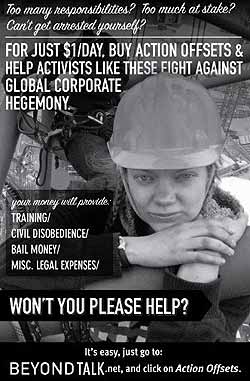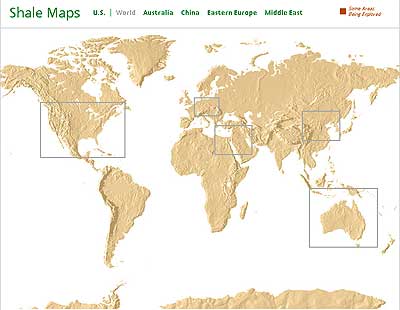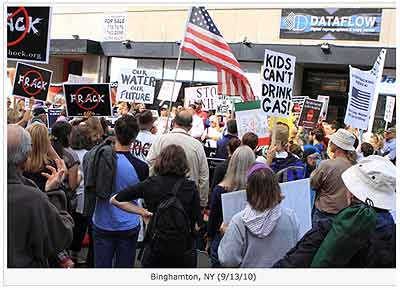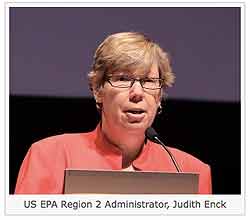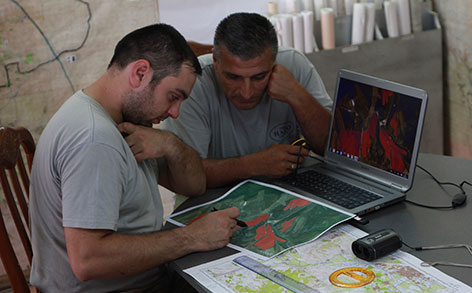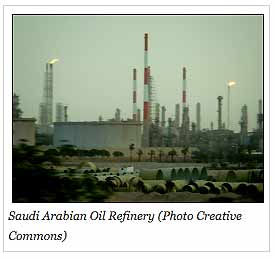Biblio
YES! Magazine reframes the biggest problems of our time in terms of their solutions. Online and in print, we outline a path forward with in-depth analysis, tools for citizen engagement, and stories about real people working for a better world.
Partners:
grist.org
Corporate Accountability International
Klean Kanteen
350.org
Green for All
Barefoot College of Tilonia
Small Planet Institute
Bainbridge Graduate Institute
Common Cause
Center for a New American Dream
Lie to me.
I've heard everything from "my secret fracking fluid is safe", to "I need sweetheart regulation and tax deals for my Big Oil and Gas folks because we are still having trouble making ends meet in our family." Can you convince a room of kids that fracking is safe using cupcakes and icing? Encana can. How about having kids compare natural gas to farting in Spectra Energy's "Kids Say [the] Darndest Things About Natural Gas"?
And there really is a Foreign Corrupt Practices Act (FPCA) blog, but the Yes Men have us wondering about the truth in ways that make us smarter by asking us to verify the legitimacy of the messages we receive through the media. Their work makes urgent civil disobedience by activists such as Appalachia Rising and scientists like James Hansen look all the more vibrant.
Unlike Josh Fox and Michael Moore whose "in your face" documentaries rub the liars' nose in doodoo, Andy Bichlbaum and Mike Bonanno serve up matter-of-fact impersonations that put their personalities in the back seat. Their tagline: "Sometimes it takes a lie to expose the truth."
Where is the truth about the Marcellus Shale gas play? It's here and out there, far flung from British Columbia, Wyoming, Colorado through Texas, Louisiana, Alabama to Pennsylvania, New York and on to Poland, Paris, Malaysia, China, India, and Nigeria; from corporate corruption to lax government oversight and environmental justice. It's hiding in the boardrooms waiting for the whistle blowers and insiders to say that we really needed those environmental impact statements to be honest after all, after there is not a drop of water left to drink. (Neil Zusman, Jan. 30, 2011.)
Fake Newspaper/Database, real website as reported by YesMen, Andy Bichlbaum and Mike Bonanno.
See: Video - The Yes Men Fix the World. (2009). Full 1:35 video from YouTube below.
See: Yes Men Claim Leonore Annenberg Prize For Art Award
June 18, 2009
FOR IMMEDIATE RELEASE
TOP HEADLINE: WORLD LEADERS SIGN PACT TO AVERT CLIMATE DISASTER
Newspaper Ignites Hope, Announces "Civil Disobedience Database"
In a front-page ad in today's International Herald Tribune, the leaders of the European Union thank the European public for having engaged in months of civil disobedience leading up to the Copenhagen climate conference that will be held this December. "It was only thanks to your massive pressure over the past six months that we could so dramatically shift our climate-change policies.... To those who were arrested, we thank you."
There was only one catch: the paper was fake.
Looking exactly like the real thing, but dated December 19th, 2009, a million copies of the fake paper were distributed worldwide by thousands of volunteers in order to show what could be achieved at the Copenhagen climate conference that is scheduled for Dec. 7-18, 2009. (At the moment, the conference is aiming for much more modest cuts, dismissed by leading climate scientists as too little, too late to stave off runaway processes that will lead to millions or even billions of casualties.)
The paper describes in detail a powerful (and entirely possible) new treaty to bring carbon levels down below 350 parts per million - the level climate scientists say we need to achieve to avoid climate catastrophe. One article describes how a website, http://BeyondTalk.net, mobilized thousands of people to put their bodies on the line to confront climate change policies - ever since way back in June, 2009.
Although the newspaper is a fake (its production and launch were coordinated by Greenpeace), the website is real. Beyondtalk.net is part of a growing network of websites calling for direct action on climate change, building on statements made in recent months by noted political figures. (For example, in September Nobel laureate Al Gore asserted that "we have reached the stage where it is time for civil disobedience to prevent the construction of new coal plants.")
See: Stephen Holden. "All Suited Up for Mischief, to Rumple Stuffed Shirts." NYT. Oct. 7, 2009.
See: The Yes Men. "Chevron - We Agree."
See: Chevron Human Energy Stories | Addressing Climate Change.
See: Anne C. Mulkern. "U.S. Chamber Sues Activists Over Climate Stunt." NYT. Oct. 27, 2009.
Foreign Policy in Focus (FPIF) publishes commentaries, briefs, and reports on its website and organizes briefings for the public, media, lawmakers, and legislative staff.
As world leaders discuss the threat to the planet in various venues around the world, it’s the poor who face the dire consequences. Marginalized and vulnerable populations--from small farmers in Africa to fisher folk on the banks of island nations--suffer most from the refusal of developed nations and corporations to cut back on emissions that are heating up the planet. But these same populations offer important and sustainable solutions to global warming.
The problem is that the world’s leaders are not listening. And that is not likely to change at the meeting on climate change in Cancun, Mexico that will start at the end of November and run through December 10...
...All signs point to an intensification of market-based proposals for bringing the planet away from the brink of environmental disaster. Rather than addressing the current model of production, trade, and consumption that has caused the crisis, these false solutions aim to deepen it. A closer look at the so-called “Clean Development Mechanisms” (CDM) shows how.
The CDMs defined in Article 12 of the Kyoto Protocol are essentially a dodge that allows developed polluting countries to avoid immediate and significant cutbacks in emissions by “offsetting” them with projects in developing countries to conserve carbon sinks (areas that store carbon, such as forests and jungles) and other schemes. The $127 billion global carbon trading market has become a lucrative marketplace for turning planetary salvation into business deals. The upshot is that the polluter is allowed to keep on polluting. Meanwhile, areas previously cared for by local communities are pulled into management systems overseen by the polluters and international organizations that have purchased their “environmental services.”
Foreign Policy in Focus (FPIF) is a “Think Tank Without Walls” connecting the research and action of more than 600 scholars, advocates, and activists seeking to make the United States a more responsible global partner. It is a project of the Institute for Policy Studies.
Democracy Now Video. Interview with Dr. Theo Colborn. April 14, 2010.
"The Environmental Protection Agency has begun a review of how the drilling process known as hydraulic fracturing, or “fracking,” can affect drinking water quality.
We speak to Dr. Theo Colborn, the president of the Endocrine Disruption Exchange and one of the foremost experts on the health and environmental effects of the toxic chemicals used in fracking." [includes rush transcript]
New Jersey based blog, featuring excellent coverage of the September 2010 EPA public meeting in Binghamton, New York with photos, comments, and links.
Mr. Wolfe knows when environmental officials are telling the truth. He is not about to give up his environmental activist's passion to correct our regulatory agencies and politicians.
Judith EnckIn 1994, Mr Wolfe became a whistleblower when he disclosed a memoranda between Governor Whitman and the NJDEP Commissioner. The Whitman memo sought to downplay the public health significance of scientific research by the Philadelphia Academy of Natural Sciences that found high levels - statewide - of mercury in freshwater fish.
Whitman made false and misleading remarks to the press regarding mercury risks. Wolfe then learned that these were not inadveted errors, but were designed as a strategy to suppress, distort, fail-to-warn the public, and avoid aggressively responding to scientific research documenting high levels of mercury in NJ freshwater fish. As a result of this unauthorized disclosure, Wolfe was forced out of the Agency and later formed NJ PEER to protect consientious public employees.
In 2002, Governor McGreevey's NJDEP Commissioner Bradley M. Campbell invited Wolfe to rejoin DEP and serve as the "conscience of the Agency".
Mr. Wolfe has a Bachelor's degree in Environmental Science and Public Policy from SUNY Binghamton (1983) and attended Cornell University's Graduate School of City and Regional Planning (1983-1985).
Bill Wolfe. Nov. 22, 2010. "State Officials Block Open Testimony of DEP Nuclear Whistleblower"
DEP’s Chief Nuclear Engineer removed and “put in a broom closet” for disclosing safety risks at the oldest US nuclear power plant.
NJ State officials blocked the open testimony of nuclear whistleblower Dennis Zannoni at a Friday State House hearing.
About Bill Wolfe:
With Sierra Club, I worked with volunteers to kill the $240 million Mercer County garbage incinerator, block the Trenton/Hopewell sewer line; led the public campaign and authored the 1996 ballot question to amend the NJ Constitution to dedicate 4% of Corporate Business Tax proceeds (appx. $100 million/year) to environmental programs; authored the 1997 Watershed Management Act that established and funded NJ’s watershed management planning program; provided testimony to the US Senate in opposition to Christie Whitman as EPA Administrator; and served on numerous Legislative and DEP regulatory stakeholder groups.
Read more at SourceWatch page.
Bill Wolfe has been Director of the NJ Chapter of Public Employees for Environmental Responsibility (PEER) since June 2005.
PEER is a national non-profit alliance of local, state and federal scientists, law enforcement officers, land managers and other professionals dedicated to upholding environmental laws and values.
Workers at a steel mill and a power plant were the first to notice something strange about the Monongahela River last summer. The water that U.S. Steel and Allegheny Energy used to power their plants contained so much salty sediment that it was corroding their machinery. Nearby residents saw something odd, too. Dishwashers were malfunctioning, and plates were coming out with spots that couldn’t easily be rinsed off.
See: Nicholas Kusnetz. "Pennsylvania’s Drilling Wastewater Released to Streams, Some Unaccounted For." ProPublica. Jan. 5, 2011.
See: West Virginia Blue: Dunkard Creek fish kill
See: The Tragedy of the Commons
See: Do the natural gas industry’s surface water withdrawals pose a health risk?
See: Center for Healthy Environments & Communities Homepage
See: The Case for a Truth and Reconciliation Commission on Toxic Hazards
See: Drilling Wastewater Disposal Options in N.Y. Report Have Problems of Their Own - ProPublica
See: Lenape Resources, Inc. | Underground Injection of Wastewater
See: Rulings Restrict Clean Water Act, Foiling E.P.A.
See: Activists Block Entrance to DEP Headquarters, Condemn Failed Enforcement
See: Flow - The War Between Public Health and Private Interests
Google and a New York financial firm have each agreed to invest heavily in a proposed $5 billion transmission backbone for future offshore wind farms along the Atlantic Seaboard that could ultimately transform the region’s electrical map.
The 350-mile underwater spine, which could remove some critical obstacles to wind power development, has stirred excitement among investors, government officials and environmentalists who have been briefed on it.
The system’s backbone cable, with a capacity of 6,000 megawatts, equal to the output of five large nuclear reactors, would run in shallow trenches on the seabed in federal waters 15 to 20 miles offshore, from northern New Jersey to Norfolk, Va. The notion would be to harvest energy from turbines in an area where the wind is strong but the hulking towers would barely be visible.
See: Plug into a Greener Grid: RE<C
Google.org is working towards a clean energy future in a variety of ways: We're working on developing utility scale renewable energy cheaper than coal (RE<C) and accelerating the commercialization of plug-in vehicles through the RechargeIT project. Our over-arching vision is to one day transform the global economy from one running on fossil fuels to one largely based on clean energy. Our Clean Energy 2030 plan offers a potential path to do just that.
Google Earth platform to simplify siting of clean energy
See: Google Earth Outreach Showcase
See: Appalachian Voices My Connection
See: Appalachian Mountaintop Removal Tour
See: Marsh Fork Elementary: Journey Up Coal River | A Community and Strip Mining
See: Mountaintop Removal (Film)
See: Tree spiker : from Earth First! to lowbagging: my struggles in radical environmental action
See: Bluedaze. Mountain Top Removal for Hydraulic Fracturing Sand
Pedro Ramirez, Jr. "Wildlife Mortality Risk in Oil Field Waste Pits." U.S. Fish and Wildlife Service. Environmental Contaminants Specialist.
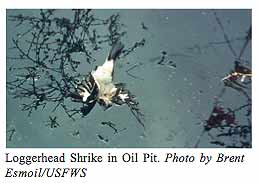
The risk that oil pits pose to wildlife has been documented by several studies. Hydrofracking involves the storage of "frack water" in open pits.
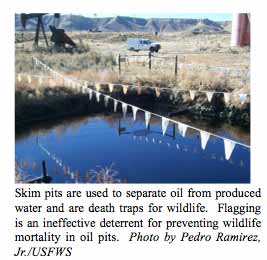
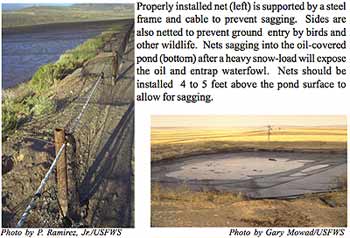
See: TxSharon (2009). Video. "Cattle Drink Drilling Waste."
See: Robert Myers (2010). Environmental Dangers of Hydro-Fracturing.
See: Laura Legere (2010). Hazards posed by natural gas drilling are not limited to below ground.
See: Pit Pollution.
See: Powder River Basin Resource Council
See: Rancho Los Malulos | A satirical view from the McGill Brothers Lease
See: Ecological integrity of streams related to human cancer mortality rates
Wikileaks has embarrassed the U.S. and a member of the House Homeland Security Committe, Candice Miller (R-Mich) has said, "It is time that the Obama administration treats WikiLeaks for what it is — a terrorist organization whose continued operation threatens our security."
I propose that this story about peak oil is a leak fed by the U.S. to drive up the price of oil in the long term.
It is the effect of oil consumption on our environment, not our economy, that is best considered around our mashup meanderings of this story. The toll that greenhouse gases are taking on human health and climate change has, by some accounts, already killed millions of children worldwide. Even is there were an endless supply, burning oil and gas has serious health effects and while scientists and economists trade models, the innocent suffer outside the lens of for-profit media. (Neil Zusman, 2011-02-19).
This report about a Guardian article by Anneneberg | USC introduces us to a lively source of student journalism.
The world may run out of fossil fuels far earlier than expected and experience a climb in the price of oil, as data in newly leaked WikiLeaks cables suggest that Saudi Arabia has fewer oil reserves than previously believed.
The latest confidential cables to be released come from the American embassy in Saudi Arabian capital Riyadh, and claim that Saudi oil reserves were overstated by as many as 300 billion barrels, or nearly 40 percent of its actual reserves.
The former head of exploration at Saudi oil monopoly Aramco, Sadad al-Husseini, stated in the classified cables that “peak oil” – the point at which global production and, thus, consumption of oil reaches its highest possible level – may come as early as 2012.
Read between the lines, see these links on Fracking Resources Guide:
Climate Co-benefits and Child Mortality Wedges | Fracking Resource Guide.
The Deep Hot Biosphere : The Myth of Fossil Fuels
Probe Earth's Interior with Advanced Radiation Sources
Center for Dark Energy Biosphere Investigations (C-DEBI)
See: Appelbaum, Binyamin. “A Life’s Value May Depend on the Agency, but It’s Rising.” The New York Times 16 Feb. 2011. Web. 17 Feb. 2011.
See also: Associated Press. "How to value life? EPA devalues its estimate: $900,000 taken off in what critics say is way to weaken pollution rules." 2008-07-10.
AUSTIN — Democratic gubernatorial nominee Bill White earned more than $2.6 million serving on the board of a gas well servicing company that now is part of a congressional investigation into possible groundwater contamination.
White, who made cleaning Houston's polluted air a hallmark of his tenure as Houston's mayor, has been on the board of BJ Services Co. since 2003, the year he was elected, earning more than $627,000.
White also received almost $830,000 in stock and another $245,000 in stock options. He will receive an additional $180,000 in stock and a retirement payout of $783,000 if the firm's merger with Baker Hughes is approved by shareholders Friday.
The issue of White's involvement with BJ Services came to light after he refused a Houston Chronicle request for his tax returns during his tenure as mayor. The relationship was disclosed in personal financial disclosure statements. White's campaign provided details on his BJ Services earnings Tuesday.
The U.S. House Energy and Commerce Committee is investigating Houston-based BJ Services Co., Halliburton and several other oil field service companies to see if the gas extraction method known as hydraulic fracturing, or fracking, is a hazard to groundwater drinking supplies in Texas, Arkansas, Colorado, New York, Oklahoma and Pennsylvania.
The Government Accountability Project’s mission is to promote corporate and government accountability by protecting whistleblowers, advancing occupational free speech, and empowering citizen activists...
...Founded in 1977, GAP is the nation’s leading whistleblower protection and advocacy organization. Located in Washington, D.C., GAP is a nonpartisan, public interest group. In addition to focusing on whistleblower support in our stated program areas, we lead campaigns to enact whistleblower protection laws both domestically and internationally. GAP also conducts an accredited legal clinic for law students, and offers an internship program year-round.
See: Halliburton's Interests Assisted by White House - Los Angeles Times.
See: Daniel Ellsberg's The Pentagon Papers | Wikipedia | The Most Dangerous Man in America (film)
See: Michael Mann. The Insider (1999). Based on a story about Jeffrey Wigand adapted from Marie Brenner, May 1996, Vanity Fair, “The Man Who Knew Too Much”.
See: Goldman Environmental Prize Winners (2001) Jane Akre and Steve Wilson.
See: Alfed and John Donovan. 2010-10-27. "Sadistic sacking of a Royal Dutch Shell whistleblower". Royal Dutch Shell PLC.com
See: Rick Piltz. Climate Science Watch.
See: Julian Assange. Wikileaks.
See: Moynihan Commission on Government Secrecy (1997) | Wikipedia
See: Massimo Calabresi. Dec. 2, 2010. Time. "WikiLeaks' War on Secrecy: Truth's Consequences."
More damaging, perhaps, is that a fundamental mistrust of government is a natural outgrowth of secrecy inflation. As the number of secrets expanded in the 1990s, Moynihan observed in his 1997 report, the imperative to keep them secret diminished.
Because "almost everything was declared secret, not everything remained secret and there were no sanctions for disclosure," Moynihan wrote. And the more secrets leak, the worse it is for government credibility: either they are important and the sanctions are too minimal, or they are unimportant and the public believes there's no point in keeping secrets at all.
"When trusted insiders no longer have faith in the judgment of government regarding secrets, then they start to substitute their own judgment," says William J. Bosanko, head of the Information Security Oversight Office at the National Archives, which oversees what gets classified. "And that's a big problem." (See TIME's video "WikiLeaks Founder on History's Top Leaks.")
See also:
Moynihan, Daniel Patrick. Secrecy: the American experience. Yale University Press, 1999.
- 'Sunlight is said to be the best of disinfectants.'
- -- U.S. Supreme Court Justice Louis Brandeis
- 'Secrecy is the badge of fraud'
- -- Sir John Chadwick (b. 1941), British judge
- 'Every thing secret degenerates, even the administration of justice; nothing is safe that does not show how it can bear discussion and publicity.'
- -- Lord Acton (1834-1902), English historian
- 'The first principle of a free society is an untrammeled flow of words in an open forum.'
- --Adlai Stevenson (1900-1965), American statesman
- 'Give me the liberty to know, to utter, and to argue freely according to conscience, above all liberties.'
- --John Milton (1608-74), English poet
BAN is the world's only organization focused on confronting the global environmental injustice and economic inefficiency of toxic trade (toxic wastes, products and technologies) and its devastating impacts.
Working at the nexus of human rights and environment, we confront the issues of environmental justice at a macro level, preventing disproportionate and unsustainable dumping of the world's toxic waste and pollution on our global village's poorest residents.
At the same time we actively promote the sustainable and just solutions to our consumption and waste crises -- banning waste trade, while promoting green, toxic free and democratic design of consumer products.
BAN is a 501(c)3 charitable organization of the United States, based in Seattle, Washington
BAN leaked the Summers Memo in 1991 that Summers signed while he was Chief Economist of the World Bank.
Hydraulic Fracturing involves dumping millions of gallons of toxic slaine brine whose ingredients remain a trade secret due to monitoring exemptions granted by the 2005 Energy Policy Act.
See: Jennifer Clapp. (2010). Toxic Exports: The Transfer of Hazardous Wastes from Rich to Poor Countries. Cornell Univ Press. 2010.
See: Gas Drillers Plead Guilty to Felony Dumping Violations
See: Tragedy of the Commons | Mixplex
See: Barlow, Maude. Blue Covenant: The Global Water Crisis and the Coming Battle for the Right to Water. The New Press, 2009.
"Rep. Diane DeGette’s (D-CO) attempt to regulate fracking — underground hydraulic fracturing for natural gas extraction — is under attack by a multimillion-dollar lobbying and public-relations campaign from the oil and gas industry. Led by the American Petroleum Institute and the Independent Petroleum Association of America, dozens of industry organizations established the Energy in Depth front group to denounce fracking legislation as an “unnecessary financial burden on a single small-business industry, American oil and natural gas producers.”
See: Lee Fuller. "HF 101: As Cornell Begins Study of Shale Gas Exploration, Energy In Depth Offers Itself Up as Resource for Ad Hoc Panel". Energy in Depth.









